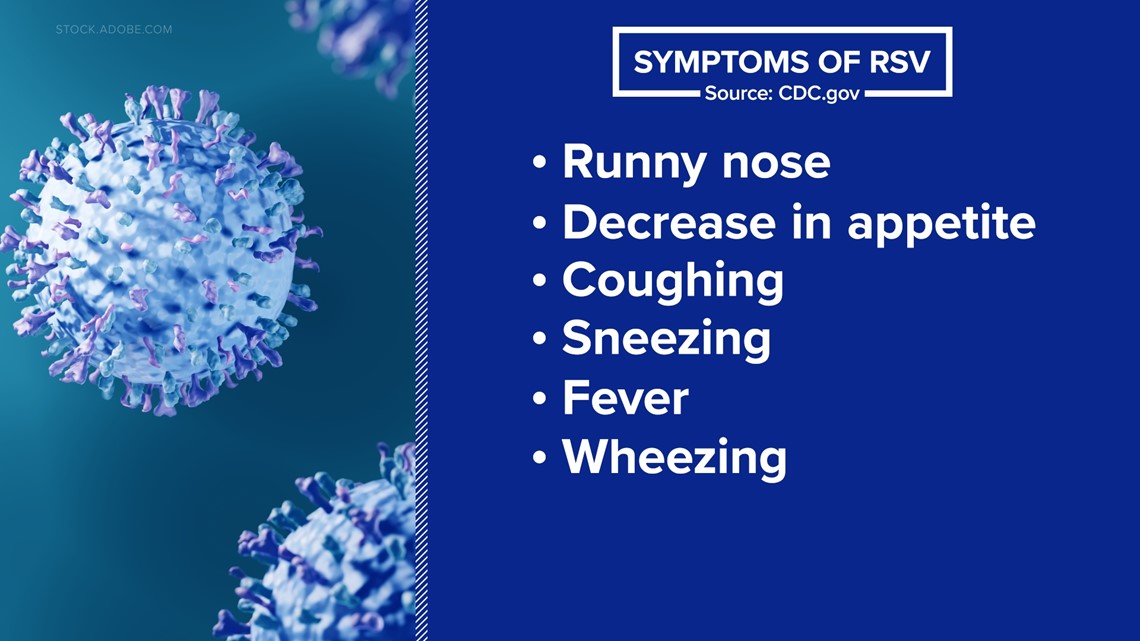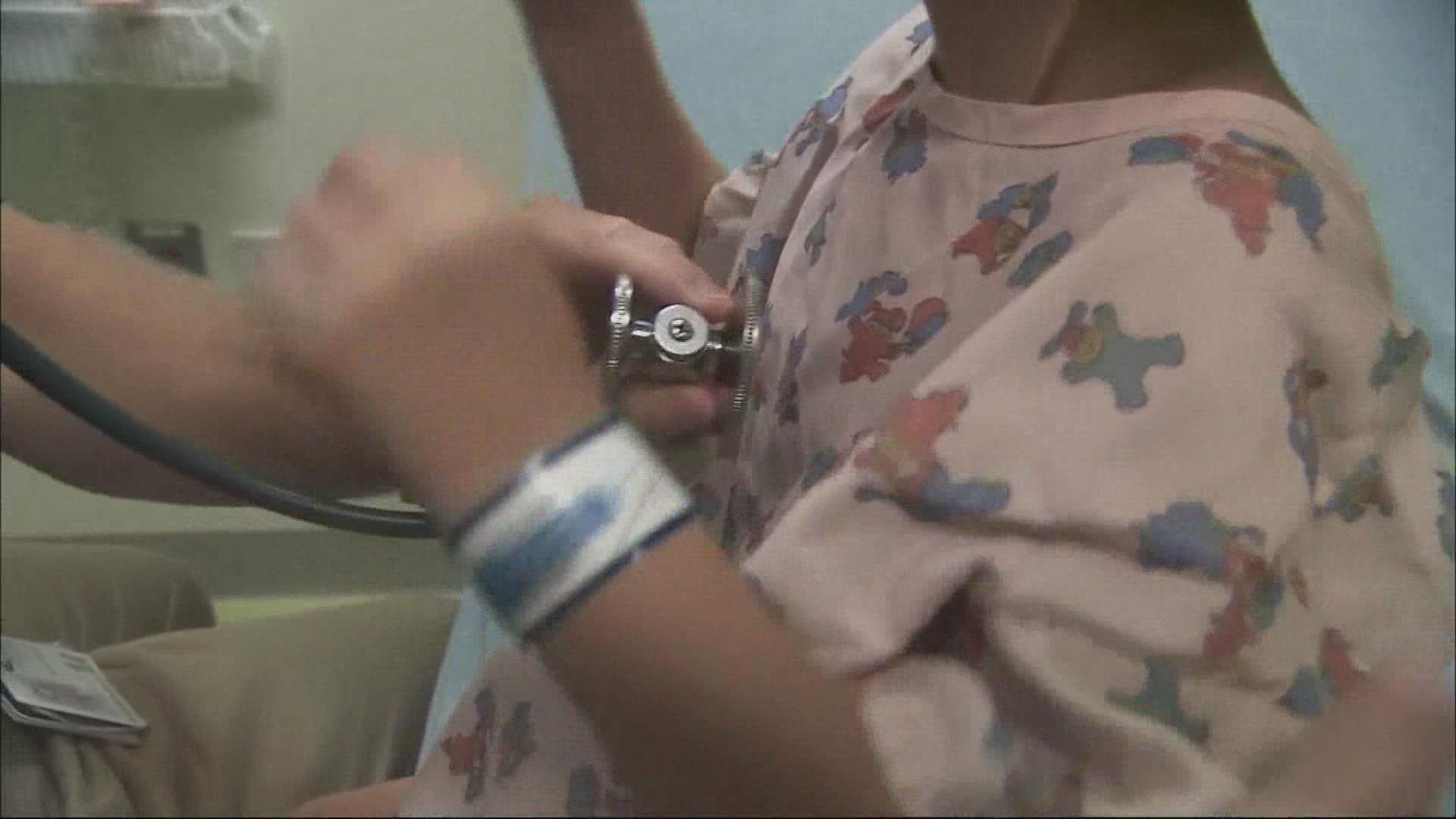PORTLAND, Ore. — Portland-area hospitals are struggling with a large wave of pediatric RSV cases, and Multnomah County health officials are urging residents to be extra cautious about health and safety in the coming weeks, even recommending that parents with babies and young children consider skipping Thanksgiving gatherings.
OHSU's Doernbecher Children's Hospital and Legacy's Randall Children's Hospital both announced this week that they had moved to crisis care standards, and Providence announced Wednesday that it would do the same for the pediatric and neonatal ICUs at its St. Vincent hospital.
"Today feels very similar to past moments where things have been particularly serious," Multnomah County Health Officer Dr. Jennifer Vines said at a hastily-arranged news conference Wednesday.
Wave of pediatric infections
Respiratory syncytial virus (RSV) is a common respiratory virus that typically causes mild cold-like symptoms but can develop into much more severe infections in babies and young children due to their smaller airways.
Practically every baby gets RSV in their first two years, Deputy Health Officer Dr. Ann Loeffler said at Wednesday's news conference, but she said the current wave has reached a higher peak than anything she'd previously seen in 30 years as a pediatrician.
"We've seen a very steep climb of this virus over the course of the last month," Vines said. "It's driving anywhere from a quarter to three quarters of hospitalizations, in particular among infants and young children."
Children under six months are typically the ones at highest risk from RSV, Loeffler added, but about a third of the hospitalizations right now are children between six months and three years of age.
Doctors aren't sure why the surge is so abnormal, she said, but they suspect it's because many fewer children got RSV during the past two years due to COVID restrictions, so now there's a higher-than-usual number of not only babies but two- and three-year-olds who are all getting it for the first time.
Reconsider Thanksgiving plans
The severity of the wave is prompting health officials to reach out specifically to families with young children and urge them to cut down the size of their Thanksgiving gatherings, Vines said, or to postpone their plans if they were going to attend a large gathering.
Anyone who is sick should stay home, she said, or if they have to be around others, wear a mask and refrain from hugging or kissing babies and young children, because RSV is primarily transmitted through direct contact or infected surface rather than airborne droplets.
"When you cough, or you wipe your nose, and then you touch the tabletop, and then the next person touches the tabletop and then touches their eye or nose, that's how the virus is transmitted," Loeffler said.
The virus can survive for hours on hard surfaces, Loeffler said, so people should practice frequent hand-washing, keep tables and countertops clean and avoid touching their faces.
Families with elderly relatives should be careful too, she added — people older than 70 or 80 can also be at higher risk from RSV.
Everyone should also make sure to get flu shots and COVID boosters, both of which are available for children age 6 months and up. A wave of flu cases has been rising right behind the RSV wave, Vines said, and there's been a small uptick in COVID cases too.
What to do if your child has RSV
Only about 2% of infants with RSV get sick enough to wind up in the hospital, Loeffler said, so health officials are trying to make sure parents can recognize and manage RSV symptoms so they'll know when it's time to take their babies to the emergency room and when it's still safe to keep them home.
"The emergency department is actually the biggest volume problem right this minute," she said. "We're barely managing to keep up with beds."
RSV infections typically start with a stuffy nose, followed by a cough after a couple days, Loeffler said. The cough tends to reach its peak around the fifth day and remain at that level for a few days, then get better over the next five to seven days, although the cough can linger for weeks.


The biggest thing parents can do for kids with RSV is to make sure they're still able to breath well enough, because the main RSV risk is mucus clogging up their smaller airways.
Parents can use salt water and a nasal aspirator to keep their kids' noses clean, and they can use Tylenol or acetaminophen to bring their fever down if it helps them drink, she said — it's important for kids to stay hydrated because otherwise their mucus secretions can become thicker.
In cases of severe bronchitis or pneumonia, kids can have difficulty breathing even if their noses are clear and their fever is down, she said, and their skin will look like it's being pulled in under the ribs and at the neck. They can also look droopy and tired because they're exhausting themselves trying to breathe.
"No matter what the hospital bed status is, if a child looks like that, they need to come to the emergency room, and sometimes 911 is going to be called," she said.
The cough by itself tends to be more of a nuisance than a problem, she added, unless it becomes so persistent that the babies are struggling to catch their breath or their throats are too irritated to drink or sleep.

